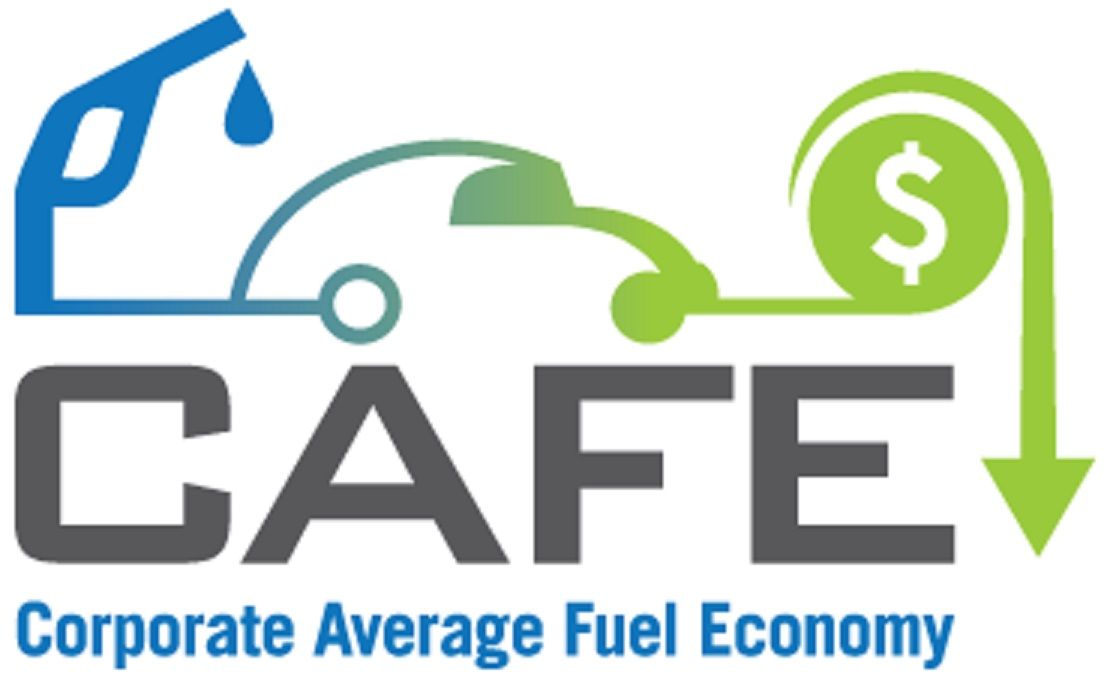Back in 1975, U.S. Congress enacted something called Corporate Average Fuel Economy or CAFE, as a way to improve the average fuel economy of cars and trucks that are produced for the United States. It was originally enacted as a response to the Arab Oil Embargo, but has remained intact ever since and has become increasingly troublesome for auto manufacturers. There’s a lot of technical lingo to explain what CAFE is in detail, but it is basically a system requires a manufacturer's entire U.S. lineup (all cars below a GVRW or 8,500 pounds, that is) to meet a certain average fuel economy. When automakers can’t meet the set standard, they are fined for each 0.1 mpg it falls short.
The set standard increases every year, with the goal calling for each manufacturer to have a fleet-wide average of 54.5 mpg by the 2025 model year. So far, manufacturers have been struggling to hit their required targets, amassing fines in the millions for non-compliance. According to the NHTSA, the totals from 2010 to 2014 are insane, with Jaguar Land Rover paying more than $46 million, Daimler paying more than $28 million, and Volvo paying more than $17 million. But, it’s about to get worse.
The current fine for non-compliance is $5.50 per each tenth of mpg an automaker falls short. That is about to change drastically, however, as the NHTSA has just increased the amount of the fine from $5.50 up to a staggering $14 per 0.1 mpg automakers fall short – that’s an increase of $8.50 per tenth. Think about that for a minute. From 2010 to 2014 Jaguar Land Rover paid out $46.2 million. At $14 per tenth Jaguar fell short, it would have paid out $117,600,000. That’s big money. So what does this mean for the auto industry? Well, it means more than you might think, and could already be hitting automakers in a huge way.
Keep reading to find out about that.
Why it Matters
The NHTSA isn’t only pushing the issue of increasing average fuel economy by imposing harsher fines; it’s being as dirty as possible about sucking in as much money as it can. Instead of making the increase effective for the 2016 or 2017 model year, the NHTSA has made the increase retroactive for the 2015 model year. That means, automakers that fell short for the 2015 model year will have to pay considerably more than previously expected and it’s going to hurt. To be fair, not all automakers fail to hit the compliance rate, with some flying below the radar for a long time. For example, a list you’ll find on the NHTSA’s CAFE Public Information Center shows what automakers have been fined and when. According to the list, BMW hasn’t been fined since it got hit for just over $5 million for the 2006 model year, and Aston Martin apparently hasn’t fallen short since 1985. Either way, those who can’t meet the compliance for whatever reason will be paying even more from here on out.
An anonymous auto executive recently spoke with Autoblog about the increase, saying, “The most disturbing thing about it is that essentially no notice was given. You make your regulatory plans based on a certain set of assumptions. To have it change suddenly without notice and without the ability to respond is really troubling.” Furthermore, the Alliance of Automobile Manufacturers says that the increase in fines are “draconian” and that the whole situation is “complicated.”
The NHTSA claims that the higher fines are meant to act as a deterrent so that it isn’t cheaper to pay the fine than it is to build and sell more efficient vehicles and that it has been enacted to keep up with inflation. I call that a bunch of crap. Yes; it is important that we continue to increase fuel economy and better emissions output, but an increase like this could be a huge hit to manufacturers – especially considering its retroactive for the 2015 model year. That fact in itself leads me to feel that the NHTSA is making a dirty attempt to grab as much money as it can because automakers have no choice but to comply or pay. For what it’s worth, there is a credit system in place that allows manufacturers to cut back on some of the fines. Those credits can also be traded between manufacturers should they choose to do so, but it still sounds to me like the NHTSA is out for blood. And, I don’t think that “inflation” is a good enough. If you’re interested in learning more about CAFE, you can check out the NHTSA database on it here.

